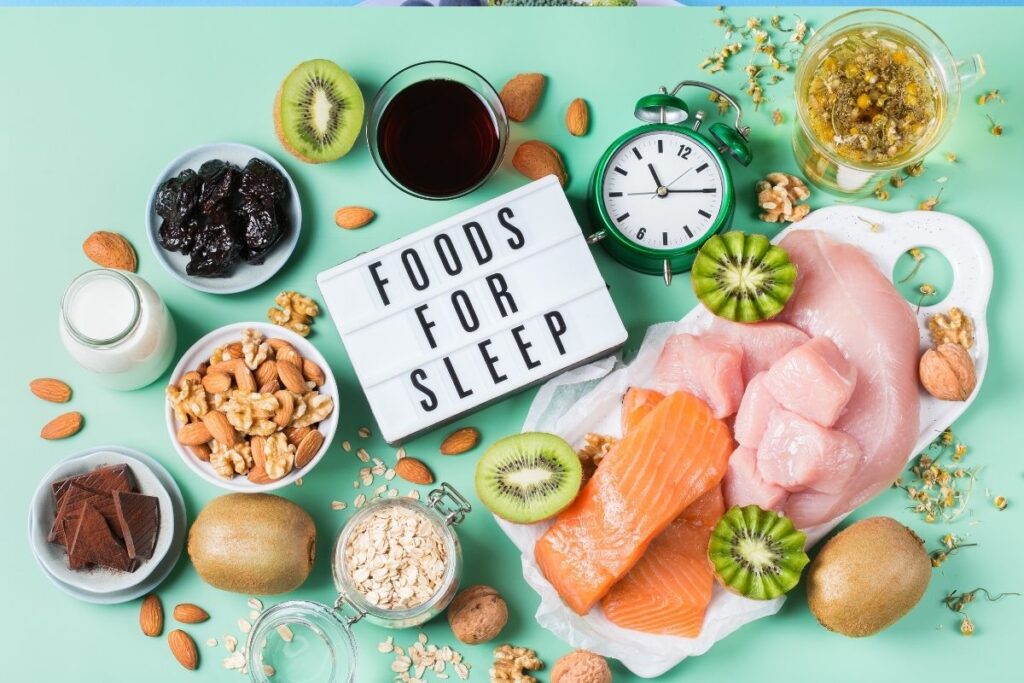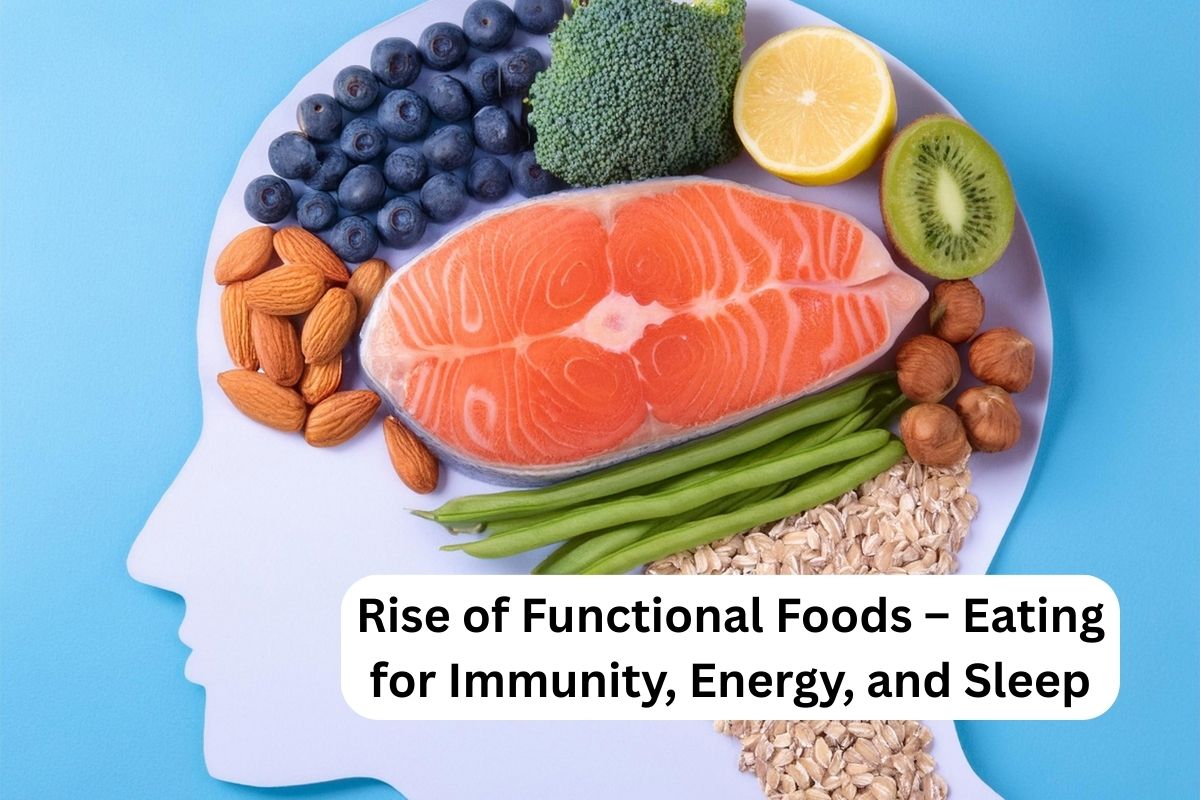In today’s fast-paced world, food is no longer just about satisfying hunger—it’s about fueling the body and supporting long-term wellness. This is where functional foods come in. Unlike traditional foods, functional foods are enriched with nutrients, bioactive compounds, or natural benefits that go beyond basic nutrition. From boosting immunity to enhancing energy and promoting better sleep, these foods are quickly becoming staples in modern diets.
The global functional food market is booming, projected to surpass $500 billion by 2028. This rise is driven by consumer demand for natural ways to stay healthy, especially after the pandemic highlighted the importance of strong immunity and balanced lifestyles.
What Are Functional Foods?
Functional foods are everyday foods that provide added health benefits. They can be naturally nutrient-rich or fortified with extra compounds. For example:
- Naturally functional: Blueberries (antioxidants), salmon (omega-3 fatty acids), garlic (immune-boosting properties).
- Fortified functional: Orange juice with added calcium, probiotic-rich yogurt, or energy bars with adaptogens.
In simple terms, functional foods bridge the gap between nutrition and medicine, helping the body fight illness, improve energy levels, and restore balance.
Functional Foods for Immunity
Immunity is one of the top concerns for consumers today. Functional foods that support the immune system often contain vitamins, minerals, and antioxidants.
- Citrus fruits (Vitamin C): Oranges, lemons, and grapefruits are packed with immune-boosting properties.
- Mushrooms (Beta-glucans): Shiitake and reishi mushrooms strengthen immune responses.
- Probiotics (Gut health): Yogurt, kefir, and kimchi improve gut microbiota, which plays a key role in immunity.
Example Insight:
During the COVID-19 pandemic, demand for immunity shots with turmeric, ginger, and black pepper skyrocketed, showing how people now see food as medicine.
Functional Foods for Energy

Tiredness and fatigue are everyday struggles. Functional foods designed for energy provide steady fuel without the crash that comes from sugar or caffeine.
- Whole grains (B vitamins): Oats, quinoa, and barley release energy slowly, keeping you full.
- Nuts and seeds (Healthy fats + protein): Almonds, walnuts, and chia seeds balance energy levels.
- Adaptogens (Stress relief): Herbs like ashwagandha and ginseng help fight fatigue and improve stamina.
Example Insight:
Athletes and fitness enthusiasts are increasingly turning to adaptogen-infused energy drinks instead of sugary sodas or coffee for sustainable energy.
Functional Foods for Better Sleep

Sleep is one of the most overlooked aspects of health, and functional foods can naturally improve rest.
- Chamomile tea (Apigenin): Calms the nervous system and reduces insomnia.
- Kiwi fruit (Serotonin): Helps regulate sleep cycles.
- Almonds (Magnesium): Relaxes muscles and supports deeper sleep.
Example Insight:
The rise of sleep-promoting snacks like magnesium chocolates or lavender-infused drinks shows how food is reshaping wellness routines.
Table: Functional Foods and Their Benefits
| Category | Food Examples | Key Nutrients/Compounds | Benefits |
|---|---|---|---|
| Immunity | Citrus fruits, mushrooms, yogurt | Vitamin C, beta-glucans, probiotics | Strengthens immune defenses |
| Energy | Whole grains, nuts, ginseng | B vitamins, protein, adaptogens | Provides lasting energy |
| Sleep | Chamomile tea, kiwi, almonds | Apigenin, serotonin, magnesium | Promotes relaxation and rest |
The Future of Functional Foods
As technology and nutrition science evolve, functional foods will only become more specialized. Future trends may include:
- Personalized nutrition: AI-driven diet plans that recommend functional foods tailored to your DNA.
- Hybrid products: Beverages that combine probiotics, adaptogens, and vitamins in one.
- Convenient formats: Functional food powders, snack bars, and ready-to-drink options for busy lifestyles.
Why Functional Foods Matter
Functional foods prove that small, mindful changes in diet can transform overall health. Instead of relying solely on supplements or medicines, people are choosing foods that naturally support immunity, energy, and sleep. This movement not only encourages healthier habits but also strengthens the connection between food and wellbeing.
The rise of functional foods reflects a growing awareness that food is medicine. Whether it’s boosting immunity with mushrooms, maintaining steady energy with whole grains, or improving sleep with almonds and chamomile, functional foods are shaping how we eat in 2025 and beyond. As consumers embrace this revolution, one thing is clear: the future of wellness is on our plates.
FAQs on Functional Foods
1. Are functional foods safe for daily consumption?
Yes, most functional foods are safe when consumed in moderation. Always consult a doctor if you have allergies or medical conditions.
2. Can functional foods replace supplements?
Not always. While they provide many nutrients naturally, some individuals may still need supplements for deficiencies.
3. Do functional foods work instantly?
No, their benefits build over time with consistent consumption as part of a balanced diet.
4. Are functional foods expensive?
Some products like adaptogen drinks or fortified foods can be costly, but many everyday items like nuts, fruits, and grains are affordable functional foods.
5. Which functional food is best for beginners?
Start simple with probiotic yogurt for gut health, citrus fruits for immunity, and almonds for better sleep.
